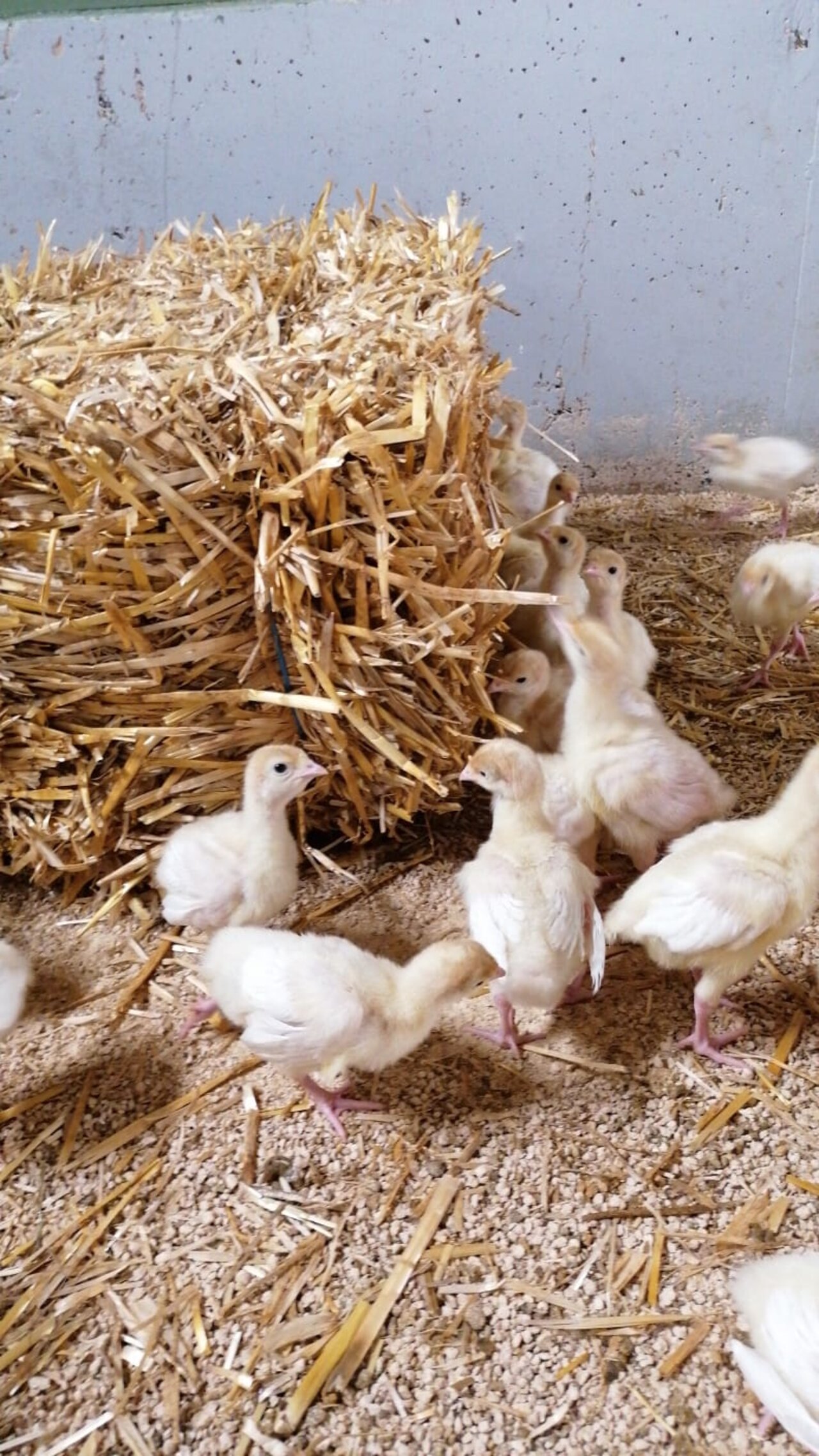Project
Turkeys with untrimmed beaks - A practice-based project with media knowledge transfer

Model and Demonstration Project (MuD) Animal Welfare Project #Pute@Practice: Turkeys with untrimmed beaks - A practical project with media knowledge transfer
The aim of the practice-oriented project with media knowledge transfer is to test an overall package of animal welfare measures on farms with turkey hens in order to achieve optimal husbandry conditions. The misbehaviour of the animals should thus be reduced to a minimum, so that in the medium term the shortening of the upper beak will become redundant.
Background and Objective
With the revision of the 1999 Federal Guidelines for a Voluntary Agreement on the Husbandry of Turkeys for Fattening, a major step was taken towards improving the husbandry conditions for turkeys (Verband Deutscher Putenerzeuger e.V., 2013). The core of the revised benchmarks is the obligatory establishment of a health control programme and the expertise of the keepers. The problem of damage pecking and cannibalism is addressed in the above-mentioned agreement exclusively with regard to the existing need for research and improvement. The need for further efforts in the area of breeding and husbandry to reduce the risk of damage pecking and cannibalism is seen as a prerequisite for achieving the goal of dispensing with the shortening of turkey beaks.
The "Poultry Charter 2015" of the Central Association of the German Poultry Industry (ZDG, 2015) also refers to the renunciation of beak trimming in the keeping of laying hens and turkeys for fattening. Regarding the feasibility of this endeavour, the charter states that this will be possible earlier for turkey hens than for turkey cocks. However, it is affirmed that research as well as model and demonstration projects on this are to be advanced and that on the basis of these scientific and practical findings an evaluation with a feasibility test is to be presented to show whether beak trimming in turkey hens can be dispensed with. As the Charter has not yet been fully implemented, the project aims to bring together all the findings to date in order to implement them on farms.
The aim of the project is to test an overall package of animal welfare measures on farms with turkey hens in order to achieve optimal husbandry conditions. The misbehaviour of the animals is to be reduced to a minimum, so that in the medium term the shortening of the upper beak will become superfluous. Furthermore, all working procedures and their application under practical conditions, also with regard to economic efficiency, are to be recorded. Each work step will be recorded in detail, both temporally and technically.
Approach
Six turkey farms are selected. On all farms, the light management will be optimized, possibilities for structuring the barn design are created, health management is improved and the farm-specific feeding is adapted. At Haus Düsse, a fattening cycle is carried out under the same conditions as on the practice farms. The results and the concrete work processes in the farm are recorded and evaluated by one staff member each, one from the University of Bonn and the Chamber of Agriculture NRW. The practical trials are economically evaluated by the Thünen Institute of Farm Economics. As part of the knowledge transfer, the first step is the creation of an instructive professional training or practice film by a service provider. This is necessary because from an animal health point of view it is not possible to demonstrate the various procedures directly in the barn to all farmers throughout Germany. The educational film is then to be summarised in a short trailer which can be used for dissemination via various social media channels (e.g. Facebook, Twitter or Instagram) and Internet sites in order to explain the procedures (including detailed procedures as well as advantages and disadvantages) to as many farmers as possible and to provide them with a decision-making tool. In addition, practical guidelines will be developed and made available for free download. In this way, all the findings of the project will be made available to farmers, associations and politicians as well as to interested consumers. The various instruments of knowledge transfer, which are to represent the core result of the project, will be presented at a public project workshop at the end of the project.
Thünen-Contact

Involved Thünen-Partners
Involved external Thünen-Partners
-
Stiftung Tierärztliche Hochschule Hannover
(Hannover, Deutschland) - Landwirtschaftskammer Nordrhein-Westfalen
(Bonn, Kleve, Münster, Deutschland) -
Geflügelwirtschaftsverband NRW
(Münster, Deutschland)
Funding Body
-
Federal Office for Agriculture and Food (BLE)
(national, öffentlich)
Duration
5.2020 - 12.2023
More Information
Project funding number: 2817MDT621
Funding program: Innovationsförderung
Project status:
finished
Publications to the project
- 0
Niewind P, Adler C, Werner D, Spindler B, Kramer M, Skiba K, Thobe P, Verhaagh M, Tiemann I, Bussmann H (2021) Damit sie nicht auf dumme Gedanken kommen : Tipps für die Putenhennenhaltung mit Langschnabel. DGS Mag 73(44):20-23







